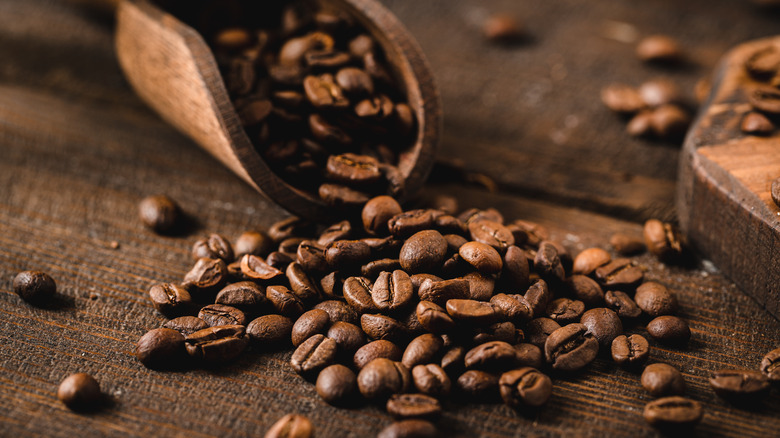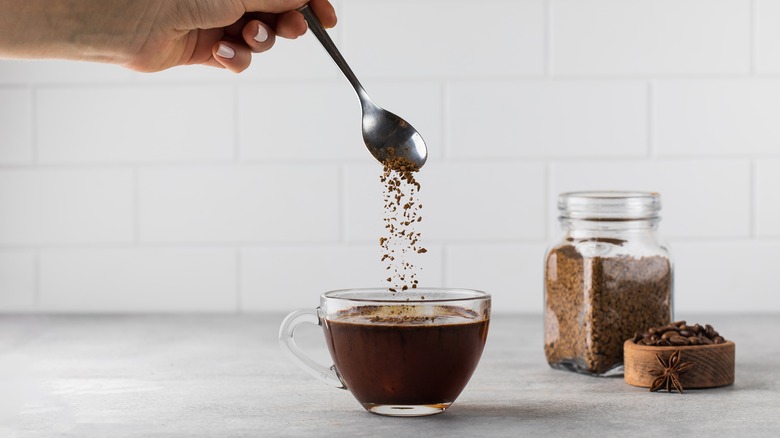Please Don't Tell Us There's A Coffee Shortage Now
Although we may have expected some of the food shortages that have happened in 2023 thus far, a coffee shortage wasn't high on the list of people's concerns. After all, how could the world possibly run low on coffee?
As in the case of the major rice shortage happening right now, many of the primary arabica coffee bean-growing regions have been hit with less-than-ideal weather conditions. For instance, Brazil has been subjected to droughts in the last few years, and Colombia faces excessive rainfall. Both of which have led to lower crop yields than in years past.
Given the low supply of arabica beans – used by chains like Starbucks, Dunkin', and McDonald's – many companies are turning to robusta beans. Robusta beans are different from arabica beans; they contain less sugar and more caffeine. Price-wise, arabica beans cost $5.50 per kg on average, and robusta beans average $2.10 per kg, according to Statista. Sounds great, right? However, with many switching to robusta due to its cheaper price tag, this supply falls short of the increased demand. According to Bloomberg, robusta coffee shipments have reportedly increased by 4% since 2021. And, if other coffee beans continue to be in short supply, this upward trajectory will likely continue.
What a robusta bean shortage means for coffee drinkers
As is usually the case when everyone decides to hop onto an alternative product, robusta coffee beans are seeing a shortage in the wake of the arabica bean shortage. To make matters worse, growing regions like Indonesia and Vietnam have been producing beans in lower quantities due to heavy rainfall.
Consequently, robusta beans — used in instant coffee and other relatively inexpensive coffees — sit at a nearly 12-year high in terms of price, per Reuters. Compared to last year's price per ton of $1,900, the cost of robusta beans has increased 26% to about $2,400 per ton, per Mint Genie.
Between the food inflation crisis and the coffee bean shortage, coffee drinkers can expect their favorite cup of coffee, be it arabica or robusta-based, to increase in price if it hasn't already. Even so, you can still get a small black coffee at McDonald's for $1 or Dunkin' for $1.59. For those who enjoy specialty beverages like Starbucks offers or other drinks from upscale or independent coffee shops and roasters, you may feel the impact more strongly than others.

